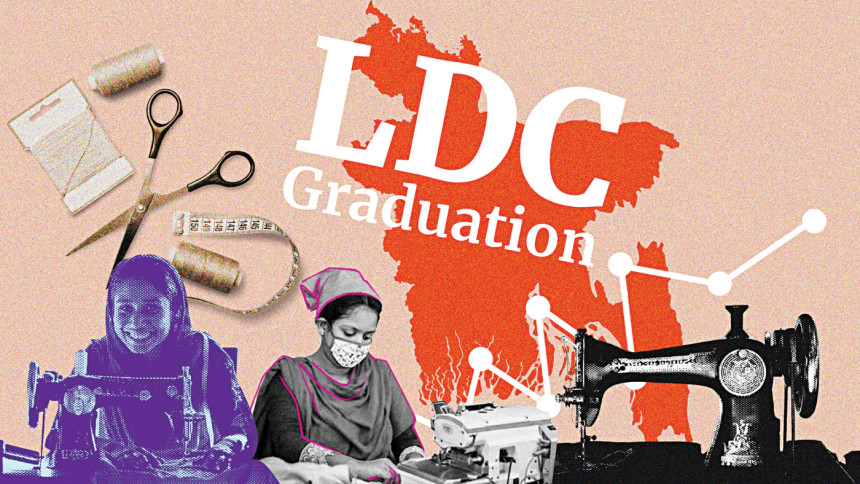LDC exit may hurt exports

Tarique Rahman, acting chairman of the Bangladesh Nationalist Party (BNP), has expressed concern over the potential impact on the economy after the nation's graduation from the least developed country (LDC) category.
In a Facebook post yesterday, he said: "Graduation is not just a milestone – it comes with risks and challenges that we need to be honest about, directly affecting our economy and people."
The BNP is concerned about a multitude of issues if Bangladesh does not proceed with caution, he added.
His comment comes amid repeated appeals from businesses to the interim government to take the initiative to defer Bangladesh's LDC graduation by up to six years.
The country is scheduled to graduate in November next year along with Nepal and Lao PDR.
Businesses said this is not the right time, as the economy faces several challenges, including an economic slowdown, a crisis in the financial sector, and inadequate preparation to compete in the global market after graduation.
Bangladesh currently enjoys duty-free export benefits to its major markets, namely the European Union, but its products will be subject to around a 12 percent tariff in the EU zone.
Rahman said the loss of trade preferences may hurt garment exports and reduce competitiveness.
"Access to concessional loans and aid will shrink, increasing financial pressure at a time when reserves and debts are already under stress," he said.
"Trade privileges afforded by the World Trade Organisation (WTO), including flexibility on subsidies and medicine patents, will no longer apply, raising the cost of essential medicines."
"Export dependency on one sector makes us vulnerable if competitiveness erodes."
He said urgent steps must be taken to ensure that home-grown businesses are not left vulnerable.
This can include diversifying the export base beyond garments into ICT, pharmaceuticals, and other value-added industries; strengthening public institutions to ensure better financial discipline and avoid a debt trap, he said.
He also stressed investing in productivity, trade logistics, and modern infrastructure to stay competitive globally, and actualising foreign commitments on trade facilities and green financing to support the transition.
"Let us not leave our workers, farmers, and youth in a vulnerable place. Bangladesh needs real, tangible progress and opportunities for its citizens before it is able to reap the benefits of graduating."
 For all latest news, follow The Daily Star's Google News channel.
For all latest news, follow The Daily Star's Google News channel. 

Comments